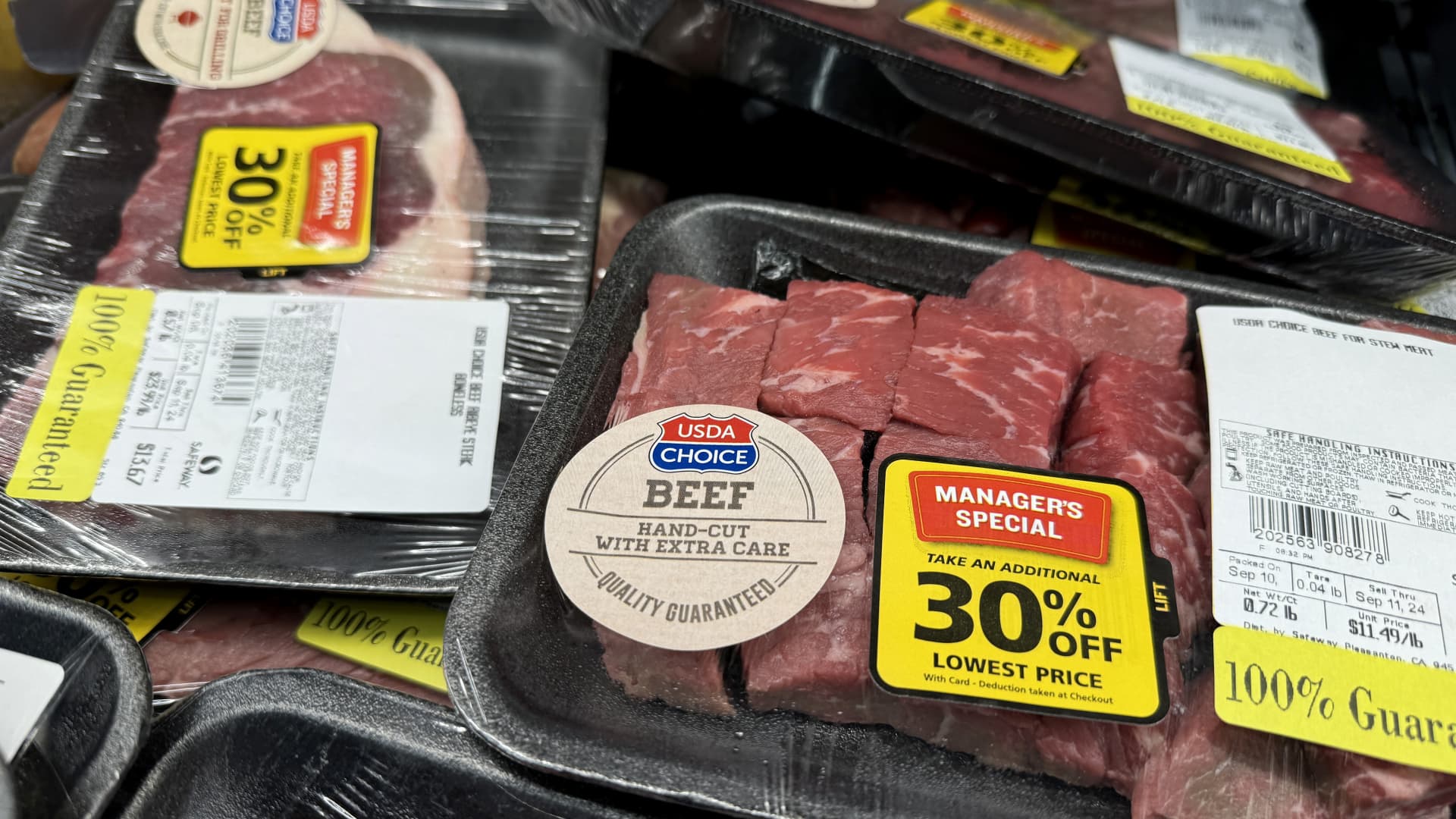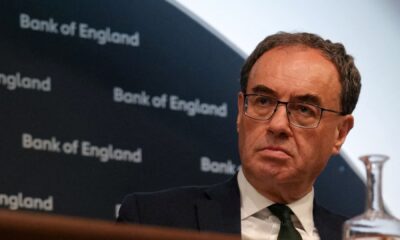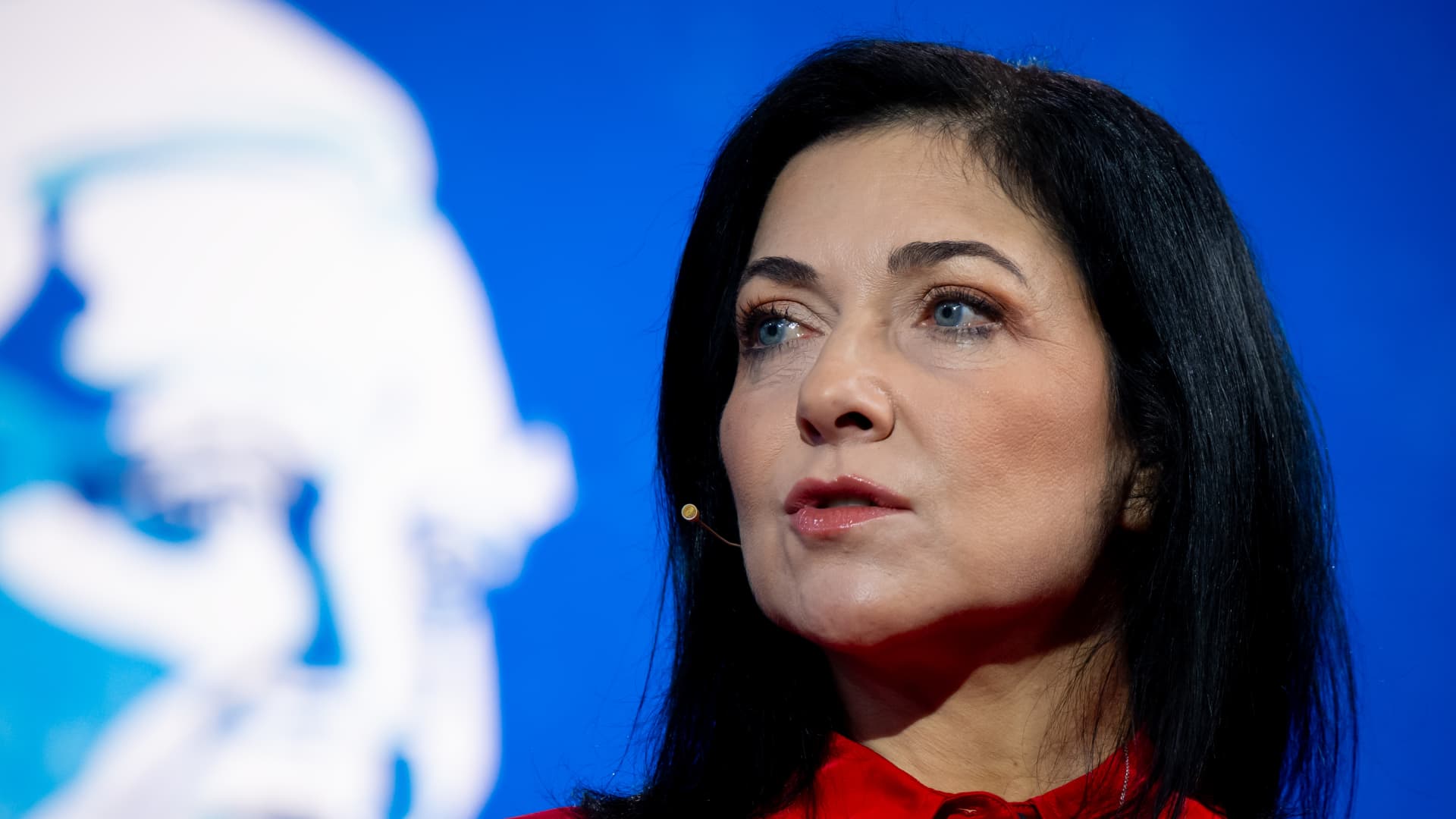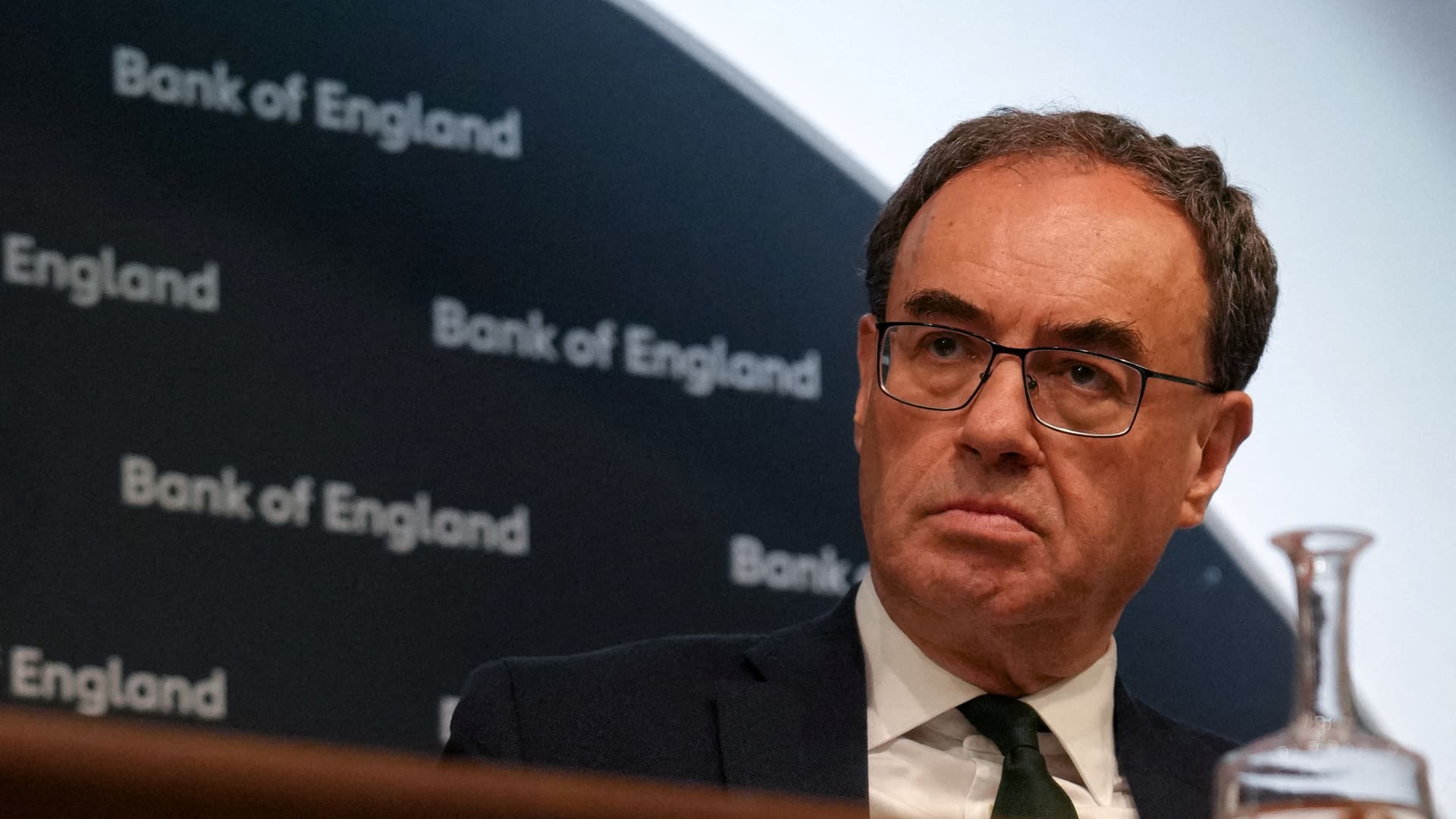Bank of England Governor Andrew Bailey attends the central bank’s Monetary Policy Report press conference at the Bank of England, in the City of London, on May 8, 2025.
Carlos Jasso | Afp | Getty Images
Bank of England Governor Andrew Bailey told CNBC on Thursday that the U.K. was heading for more economic uncertainty, despite the country being the first to strike a trade agreement with the U.S. under President Donald Trump’s controversial tariff regime.
“The tariff and trade situation has injected more uncertainty into the situation… There’s more uncertainty now than there was in the past,” Bailey told CNBC in an interview.
“A U.K.-U.S. trade agreement is very welcome in that sense, very welcome. But the U.K. is a very open economy,” he continued.
That means that the impact from tariffs on the U.K. economy comes not just from its own trade relationship with Washington, but also from those of the U.S. and the rest of the world, he said.
“I hope that what we’re seeing on the U.K.-U.S. trade side will be the first of many, and it will be repeated by a whole series of trade agreements, but we have to see that happen of course, and where it actually ends up.”
“Because, of course, we are looking at tariff levels that are probably higher than they were beforehand.”
In Bank of England’s Monetary Policy Report released Thursday, the word “uncertainty” was used 41 times across its 97 pages, up from 36 times in February, according to a CNBC tally.
The U.K. central bank cut interest rates by a quarter percentage point on Thursday, taking its key rate to 4.25%. The decision was highly divided among the seven members of its Monetary Policy Committee, with five voting for the 25 basis point cut, two voting to hold rates and two voting to reduce by a larger 50 basis points.
Bailey said that while some analysts had perceived the rate decision as more hawkish than expected — in other words, leaning toward holding rates elevated than slashing them rapidly — he was not surprised by the close vote.
“What it reflects is that there are two sides, there are risks on both sides here,” he told CNBC.
“We could get a much more severe weakness of demand than we were expecting, that could then pass through to a weaker outlook for inflation than we were expecting.”
“There’s a risk on the other side that we could get some combination of more persistence in the inflation effects that are gradually working their way through the system,” such as in wages and energy, while “supply capacity in the economy is weaker,” he said.
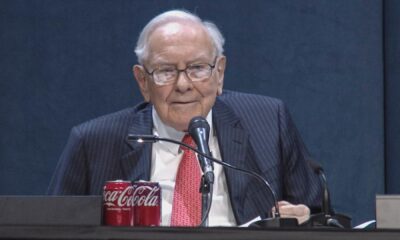
 Finance1 week ago
Finance1 week ago
 Finance1 week ago
Finance1 week ago
 Accounting1 week ago
Accounting1 week ago
 Economics1 week ago
Economics1 week ago
 Economics1 week ago
Economics1 week ago
 Personal Finance5 days ago
Personal Finance5 days ago
 Economics1 week ago
Economics1 week ago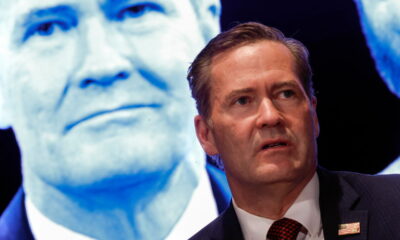
 Economics1 week ago
Economics1 week ago
